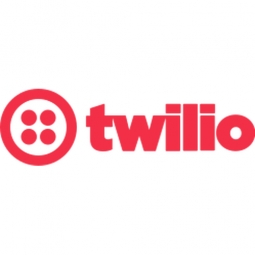Download PDF
Handy Boosts Customer Engagement by 50% with Twilio-Powered Lead Management
Applicable Industries
- Consumer Goods
- Telecommunications
Applicable Functions
- Procurement
- Sales & Marketing
Use Cases
- Speech Recognition
- Time Sensitive Networking
The Challenge
Handy, a platform that connects individuals with pre-screened independent service professionals for household services, faced a significant challenge in efficiently connecting home and apartment dwellers with verified home service professionals. The traditional process of finding a housecleaner or handyman was often tedious and time-consuming, involving getting a list of providers from friends or online services, making phone calls, conducting reference checks, and finally scheduling an appointment. The process was not only inconvenient for customers but also for the professionals who had to advertise and market their services.
About The Customer
Handy is a New York-based company founded in 2012 that provides a platform for connecting individuals looking for household services with quality, pre-screened independent service professionals. From home cleaning to handyman services, Handy matches thousands of customers every week with trusted professionals in cities around the world. The company was built to extend on-demand services to the home, a concept successfully demonstrated by Uber in the car ride industry. Handy's mission is to make the process of finding a housecleaner or handyman as easy and efficient as possible.
The Solution
Handy addressed this challenge by developing a system that connects consumers with pre-validated and rated professionals for specific skills. When a consumer requests a service online, Handy uses its database to find the most qualified and available vendor. The time it takes to request, book, and confirm an appointment is reduced to 60 seconds. Handy uses a Twilio-powered SMS solution to efficiently communicate with the professional, regardless of phone type, data plan, and other limiting factors, using a mobile app. The deal is closed with a confirmed appointment, credit card payment, and insurance. Handy's system allows the consumer and vendor to exchange job details without exposing their permanent phone numbers. Handy also uses Twilio's voice APIs to purchase and release phone numbers.
Operational Impact
Quantitative Benefit
Related Case Studies.
.png)
Case Study
Improving Vending Machine Profitability with the Internet of Things (IoT)
The vending industry is undergoing a sea change, taking advantage of new technologies to go beyond just delivering snacks to creating a new retail location. Intelligent vending machines can be found in many public locations as well as company facilities, selling different types of goods and services, including even computer accessories, gold bars, tickets, and office supplies. With increasing sophistication, they may also provide time- and location-based data pertaining to sales, inventory, and customer preferences. But at the end of the day, vending machine operators know greater profitability is driven by higher sales and lower operating costs.

Case Study
Series Production with Lot-size-1 Flexibility
Nobilia manufactures customized fitted kitchens with a lot size of 1. They require maximum transparency of tracking design data and individual processing steps so that they can locate a particular piece of kitchen furniture in the sequence of processes.

Case Study
American Eagle Achieves LEED with GE LED Lighting Fixtures
American Eagle Outfitters (AEO) was in the process of building a new distribution center. The AEO facility management team decided to look at alternate options for lighting layout that could provide energy and maintenance savings. AEO would need a full-time maintenance employee just to replace burned-out fluorescent tubes.








